The 7th Imagines conference on 5-6 March 2021 was the project’s first online-only event, and we were overwhelmed by more than 120 participants from all over the globe joining us to discuss Playful Classics.
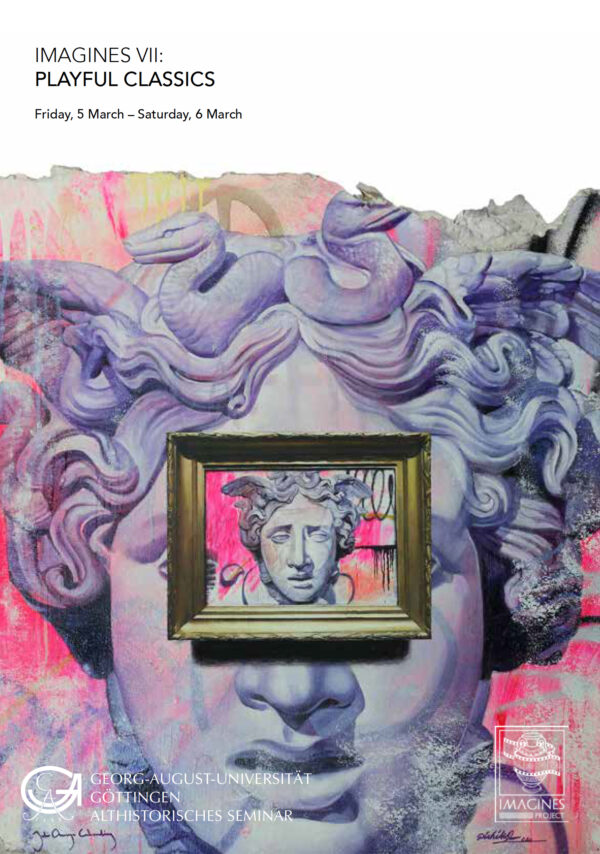 Conference programme showing the Orphical Hymn to Medusa by Spanish street artists PichiAvo
Conference programme showing the Orphical Hymn to Medusa by Spanish street artists PichiAvo
The new form allowed us to intensify a distinct feature of the Imagines conferences: the dialogue between scholars and scientists. Including presentations and workshops to this extend – by a theatre collective, a street art project, game designers and a musician –, would not have been possible had the event been held in presence as originally intended. And without the pandemic forcing us into an online event, we would probably not have come up with a Classics film quiz as entertainment for the conference breaks.
Imagines VII – Playful Classics was opened by the co-organizers Antje Kuhle (Regensburg) and Martin Lindner (Göttingen). Welcome notes by Heike Behlmer, the director of the Centrum Orbis Orientalis et Occidentalis, and by Tanja Scheer, the Head of the Ancient History Department, emphasized the support and interest the project has received at the host university of Göttingen. In this context, we also thank the Klaus Inhülsen Foundation for the generous endorsement and Bloomsbury Academic for sponsoring the film break quiz.
The scientific prelude came in the form of programmatic keynote delivered by Dunstan Lowe from the University of Kent. His insights into The Danger of Seriousness: Play and the Future of Classics – and especially the concept of classical reception as a play with “cultural toys” – set the scene for the upcoming sessions. The first of these led us to the construction and deconstruction of antiquity, often in a rather literal sense: Artemis Yagou (Munich) demonstrated the variety of construction sets inspired by ancient Greek history. Sven Günther (Changchun) introduced us to the ambiguous role of discussions about Classical topics in the Chinese app WeChat. Antonius Adamske, a conductor and musicologist, argued with many examples from historical and recent productions why antiquity continues to be relevant on the stage.
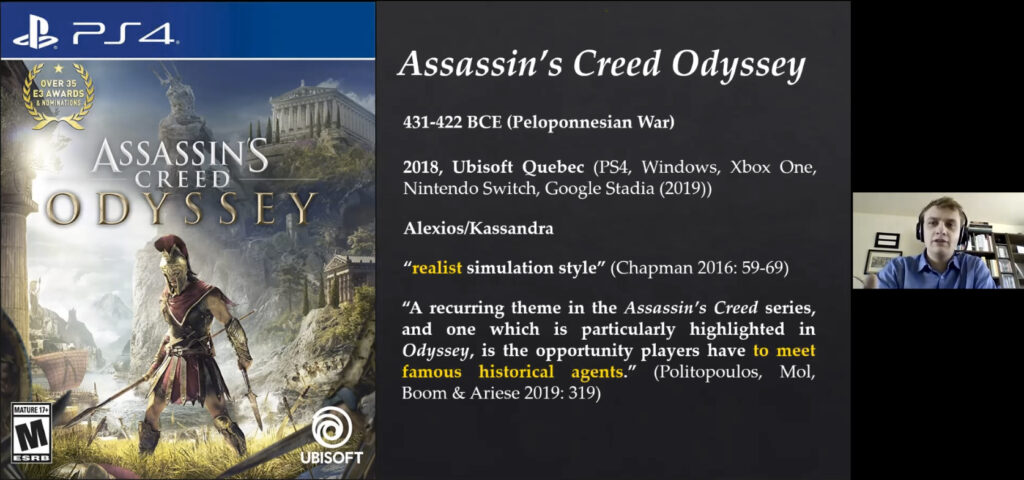 The second session focussed on the faces of antiquity and their constant reframing through classical reception. Alexander Vandewalle (Antwerp/Ghent) reflected the roles of Socrates as character in the video game Assassin’s Creed Odyssey.
The second session focussed on the faces of antiquity and their constant reframing through classical reception. Alexander Vandewalle (Antwerp/Ghent) reflected the roles of Socrates as character in the video game Assassin’s Creed Odyssey.
The first day closed with a session on playful learning, opened by Eva Christof (Graz) who discussed classical reception in the promotion of recycling campaigns and ads. Kai Matuszkiewicz (Kassel) and Kai Ruffing (Marburg) presented the results of a project using Assassin’s Creed Odyssey as a tool for digital game-based learning. Anabelle Thurn (Freiburg) chose Caesar and Cleopatra as depicted in children’s toys to illustrate the impact of playful interaction with antiquity on a young target audience. Anyone interested in the larger context might wish to take a look at the Freiburg project on historical learning and awareness. The online format sadly meant that we could not gather at our gaming tables and play our final entry for the day, the Bulgarian board game Archaeologists vs Treasure Hunters. Lyudmil Vagalinski at least gave us a glimpse in form of a film presentation, and offered valuable insights into the background of this unusual piece of classical edutainment.
Day 2 began with an interlude in the literal sense: Martina Treu (Milan) explained the origins and concepts of the Non School of Teatro delle Albe in Ravenna, an initiative that introduces children and young adults to ancient theatre. The subsequent workshop by Laura Redaelli and Alessandro Renda reflected some of the collective’s impressive activities realized in Italy and Africa.
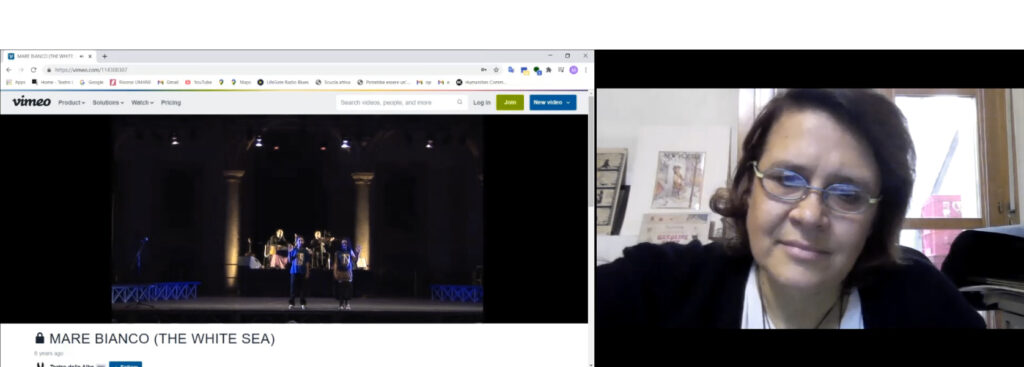
The fourth session was devoted to physical interaction with the past, starting with ancient history and archaeology in theme parks. Filippo Carlà-Uhink (Potsdam) and Florian Freitag (Duisburg-Essen) took us on a tour around the world, adding new aspects to the findings presented in a recent Imagines volume. Zoa Alonso Fernández (Madrid) analysed the adaption of the Achilles myth in the postmodern theatrical extravaganza created by Richard Move. Luis Unceta Gómez (Madrid) covered the practice of toga parties, and the intermedial influences that shaped this specific appropriation of sexualized antiquity.
In our final session, we concentrated on national and nationalistic reception, beginning with Pepa Castillo (La Rioja) and her treatment of the parodistic Historia de Aquí by the Spanish caricaturist Antonio Fraguas de Pablo, aka “Forges”. Antonio Duplá Ansuategui from the University of the Basque Country put card games from the Museo Fournier in Vitoria in the context of a Spanish search for historical identity. Charo Rovira Guardiola (London) led us to 19th century satire in France and the drawing series Histoire ancienne by Honore Daumier. Finally, Chiara Sulprizio from the Vanderbilt University surprised us with the versatility and self-irony of Greek mythology in Russian animation films.
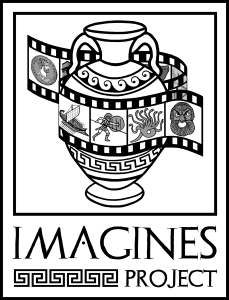
At the end of two eventful days, the games had to end eventually – if only for the time being. With the upcoming relaunch of the Imagines website, we will continue to add more information on associated projects, outreach activities and publications. We are also preparing a collective volume on Playful Classics that will hopefully see the light of day in 2023. In the same year, the Imagines Project will move to Austria and reconvene for the next conference at Salzburg University. Until then, we will follow Seneca’s dictum as far as possible: nec in eadem intentione aequaliter retinenda mens est, sed ad iocos devocanda…
Imagines VII – Playful Classics (5-6 March 2021)
Antiquity is not to be trifled with, or so one might believe from the majority of serious scholarship. Classical reception, however, is rich in playful recreations, inventions and parodies of antiquity. The results are anything but mere entertainment. Their variety and their impact would be ignored at the peril of understanding fashions of classical reception – and the historical traditions they in turn shaped, influenced or undermined. Classical reception is very much an ongoing creative process.
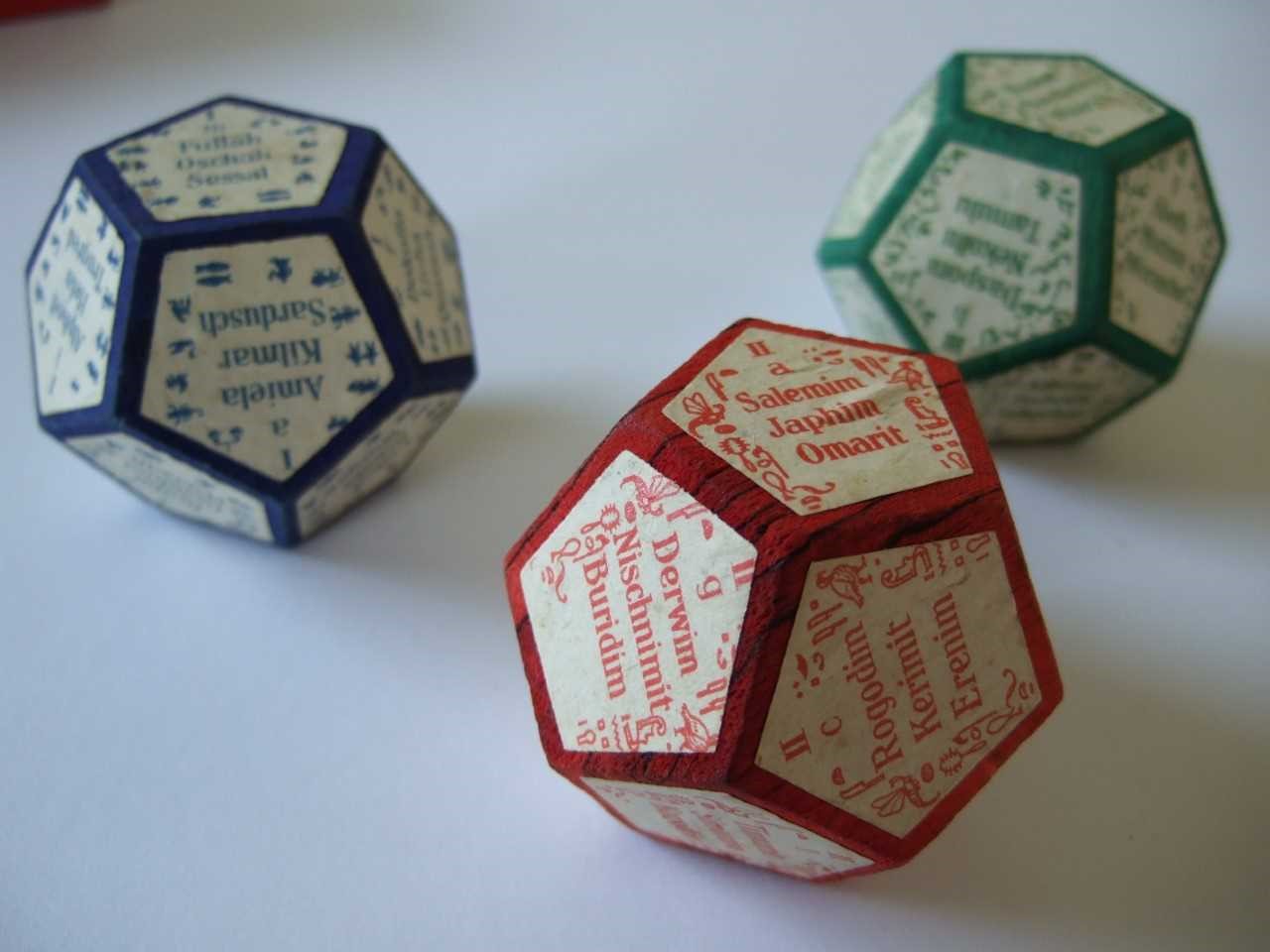
The 7th Imagines conference will therefore turn to all kinds of playful reception in the visual and performing arts from the 19th to the 21st century. The event’s programme will include – but is by no means restricted to – improv theatre, video games, sculpture, living history, opera, board games, graffiti art and other kinds of adaptation and interaction with classical antiquity. We are particularly interested in the creative aspects of “traditions in the making”, in issues of alternate realities and in the non-European tradition.
Imagines VII – Playful Classics is hosted by the Göttingen Department of Ancient History in co-operation with the Tom Stern Film Archive and co-organized by Juliette Harrisson (Birmingham), Antje Kuhle (Regensburg) and Martin Lindner (Göttingen).
News & Events
-
Multimodal Landscapes of Mediterranean Antiquity. Workshop, 25-27 April 2024, Essen
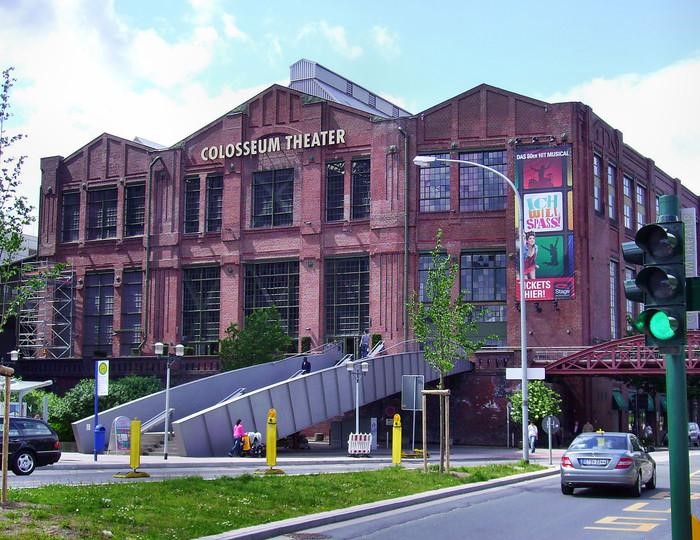
The workshop “Multimodal Landscapes of Mediterranean Antiquity” was supported by and held at the College of Social Sciences and Humanities of the Ruhr University Alliance, Essen on 25-27 April 2024. Several members of Imagines, including both organisers, participated in this exploratory event which catalogued and study existing and remembered imageries of ancient pasts in the city of Essen. Co-organised by Senior Fellow Marta García Morcillo (Durham University, UK) and her tandem partner Florian Freitag(University of Duisburg-Essen), this experimental project united researchers from different fields to investigate cultural artifacts and signs on site, including advertising, branding, photographs, and street art as well as permanent, ephemeral, and vanished architectural elements and recorded events that establish connections between ancient Mediterranean cultures and Essen’s modern cityscape (19th to 21st centuries). This pilot project will serve as a case study for an interactive...
-
News. Coming event. Imagines 8. Pagan Porntopias? Poster and Programme, Madrid 27-29 Sep. 2023
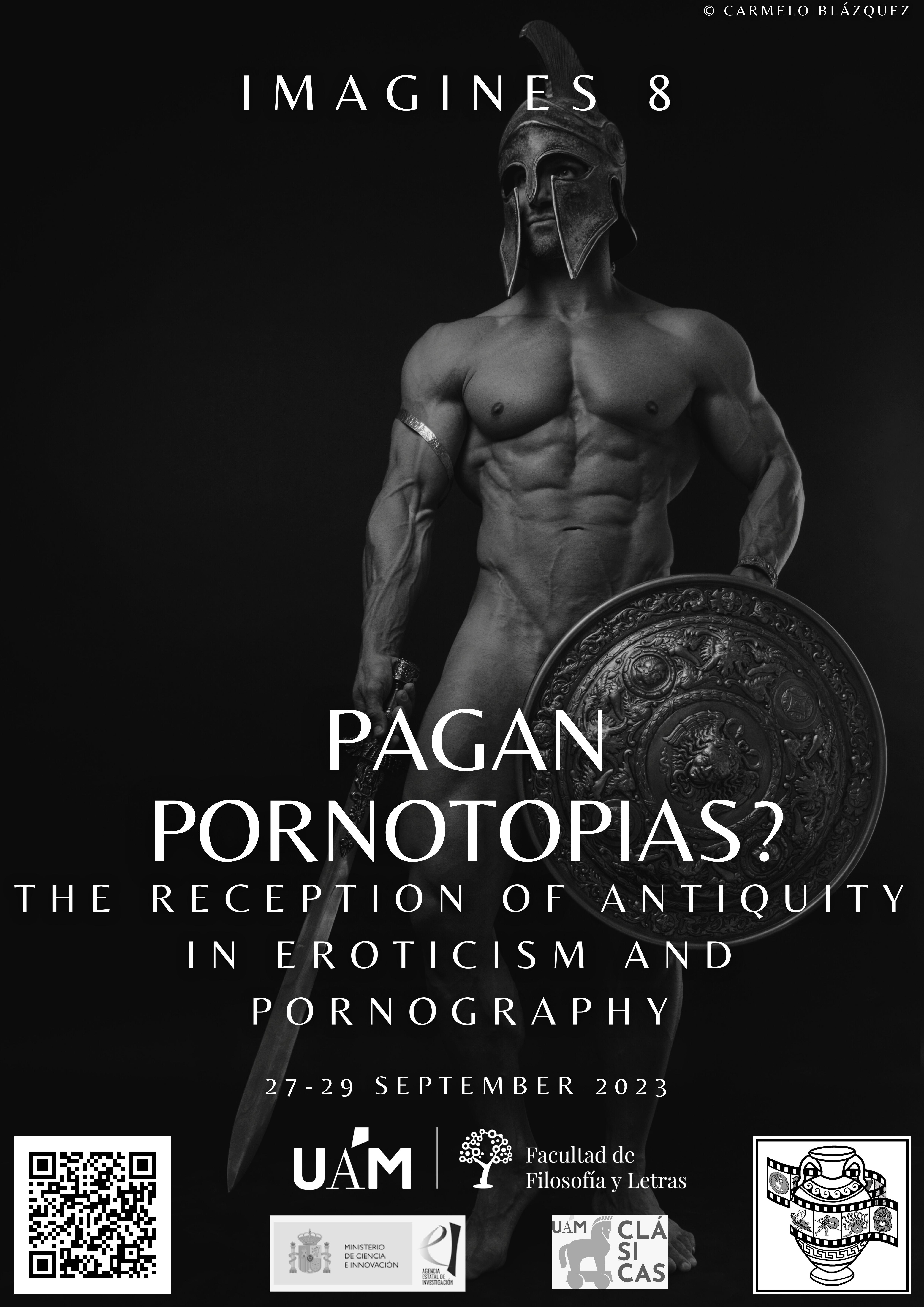
News: Imagines 8 is coming! Here the poster, programme, and information to attend: Pagan Pornotopias? The Reception of Antiquity in Eroticism and Pornography, Madrid, 27 to 29 September 2023.
-
Lecture and Workshop: Greek and Roman Antiquity for Children and Young Adults, Potsdam 5 and 7 July 2023

LECTURE GIRL TO WOMAN: THE MYTH OF PERSEPHONE IN YOUNG ADULT FICTION Cristina Salcedo González Universidad Complutense de Madrid 5th July 2023 / 18.00 CAMPUS Am Neuen Palais House 9 / Room 1.02 This lecture investigates the representation of a very popular figure from ancient myth, Persephone, in young adult fiction, analysing a series of examples from a range of anglophone cultures and contexts (New Zealand, South Africa, UK and USA). It will be shown that Persephone can represent and cover a broad range of diverse actual issues, ranging from LGBTQI+ desire to eating disorders, from partner violence to parental mental health, from PTSD to caring responsibility. Through Persephone’s example it will be shown how relevant Greek mythology still is in contemporary cul- ture – and specifically in the entertainment and forma- tion of young adults in the anglophone world. WORKSHOP GREEK AND ROMAN ANTIQUITY FOR CHILDREN AND YOUNG ADULTS 7th July 2023 / 10.00 WIS Bildungsforum Potsdam 10.00...
-
New: Imagines Book series, Vol. 14

Volume 14 of the Imagines book series announced The Reception of Cleopatra in the Age of Mass Media by Gregory N. Daugherty
-
Antiquity in silent films from the Tom Stern Collection
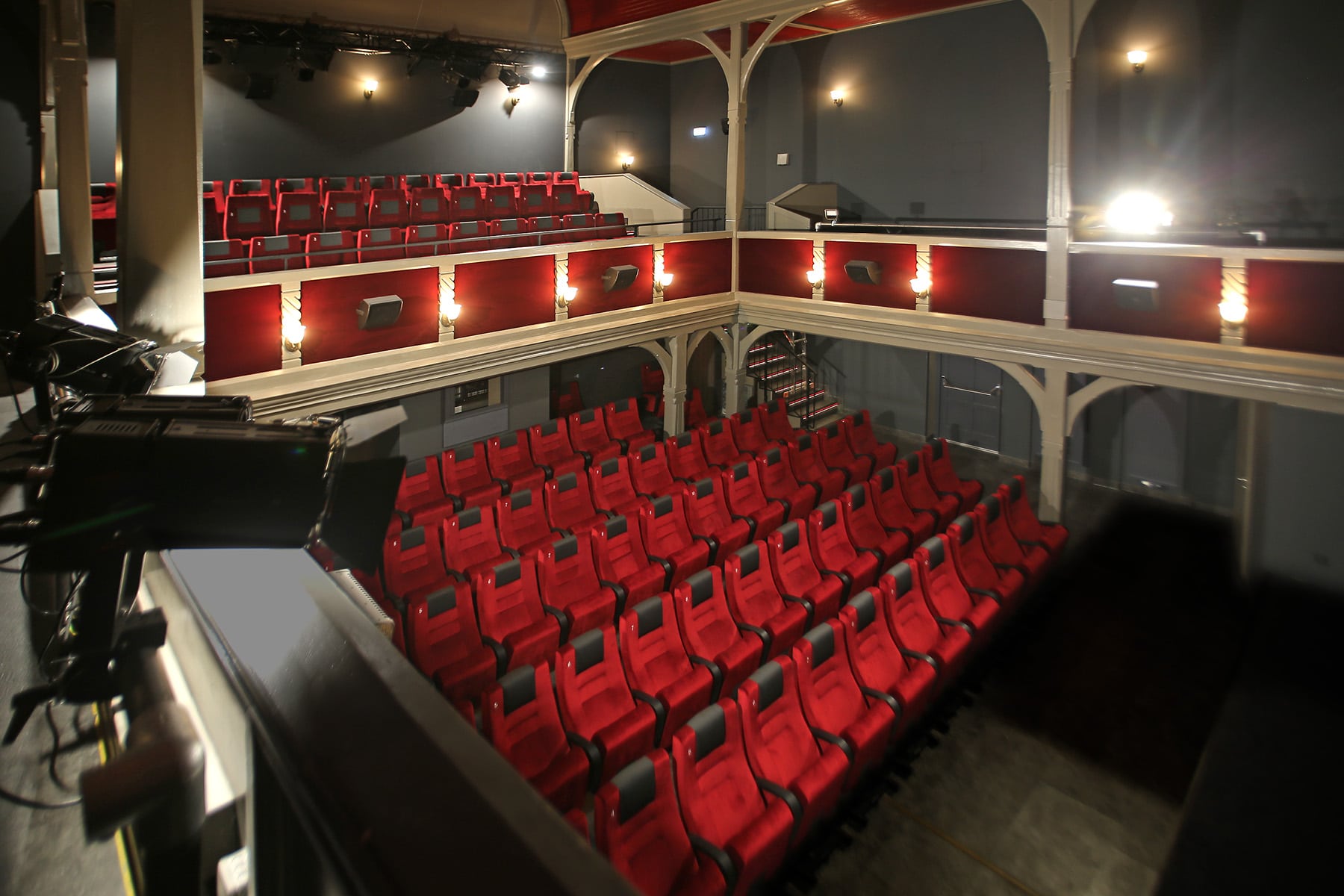
Antiquity in silent films from the Tom Stern Collection shown at the 5th Göttingen Night of Science (5 July 2022) Cinema Méliès, Göttingen
-
Conference: Performing Ancient Greek Literature in a Time of Pandemic (23-24 June 2022)
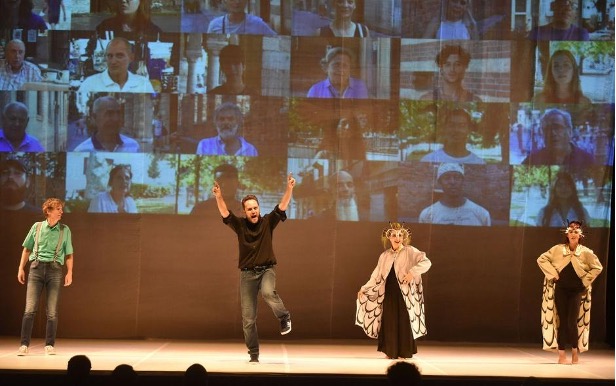
Organizers: Anastasia Bakogianni (Massey University, New Zealand) and Barbara Goff (University of Reading, UK)